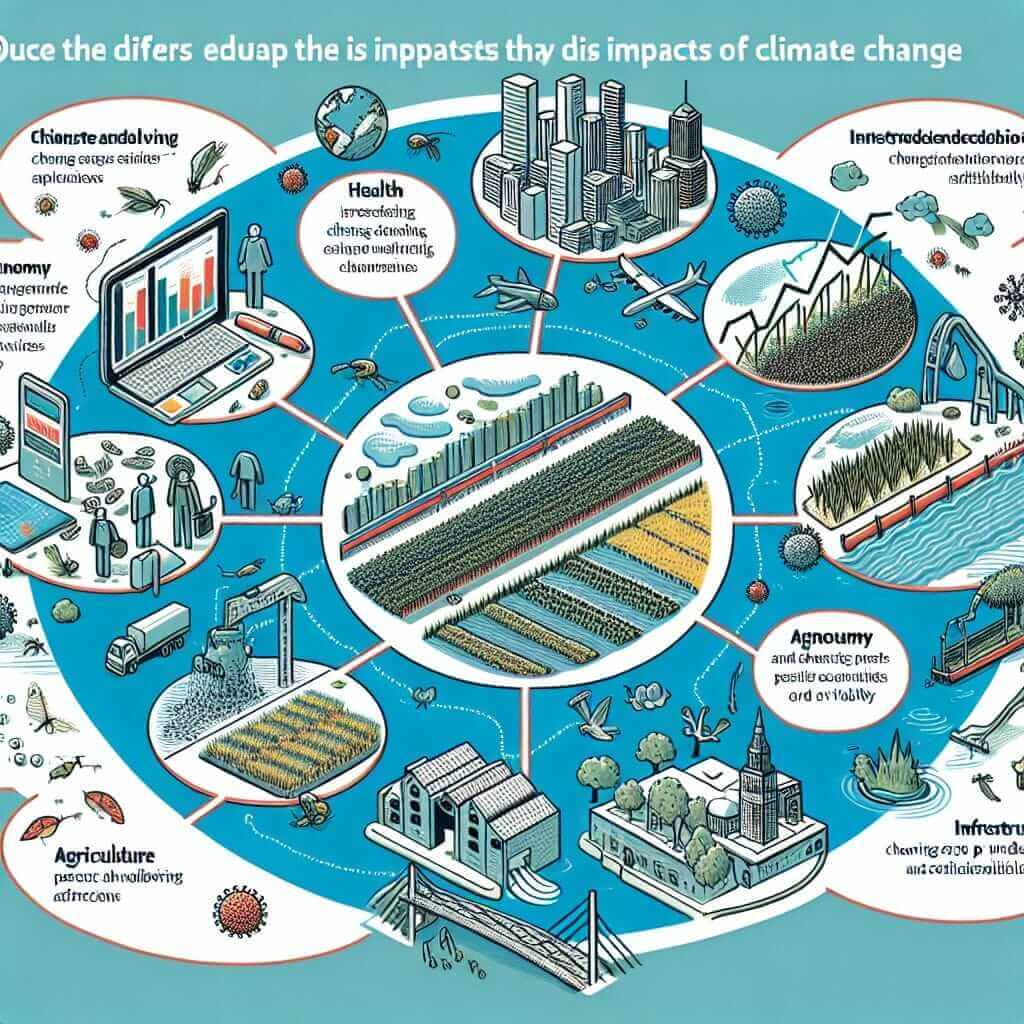The IELTS Reading section often challenges candidates with passages based on current global issues. One such pertinent and timely topic is climate change and its implications for international development. Given the increasing frequency and depth of discussions around this, it is highly plausible that such themes could appear in future IELTS exams. Candidates should be well-prepared to tackle these kinds of passages by understanding the core issues and practicing relevant reading strategies.

Reading Passage: The Implications of Climate Change for International Development
Medium Text
Climate change is one of the most pressing issues in global development today. It affects various aspects of international development, from economic growth and sustainable development to poverty reduction and health initiatives. The far-reaching impacts of climate change necessitate a coordinated international response to mitigate risks and adapt to new realities.
Economic Growth and Sustainability
Climate change poses significant threats to economic growth, especially in developing countries. Increased frequency and severity of natural disasters like floods, droughts, and hurricanes disrupt economic activities, destroy infrastructure, and drive populations into deeper poverty. Economies that rely heavily on agriculture are particularly vulnerable as changes in weather patterns can result in reduced crop yields and food shortages.
Health Implications
The health impacts of climate change are profound, affecting both mental and physical health. Rising temperatures and changing precipitation patterns can lead to the spread of vector-borne diseases such as malaria and dengue fever. Additionally, extreme weather events can cause injuries, increase the incidence of respiratory and cardiovascular conditions, and exacerbate mental health issues due to stress and displacement.
Read more about how climate change is affecting global health initiatives.
Poverty and Inequality
Climate change exacerbates existing inequalities and disproportionately affects the poor. Vulnerable communities often lack the resources to recover from climate-induced shocks, pushing them further into poverty. Developing countries require substantial international aid and investment to build resilient infrastructure and adopt sustainable practices.
Policy and International Cooperation
Effective global response to climate change involves robust policy frameworks and international cooperation. Agreements such as the Paris Agreement aim to unite countries in reducing greenhouse gas emissions and promoting sustainable development. However, achieving these goals requires significant financial commitments, technological advancements, and political will.
Practice Questions
Multiple Choice
-
According to the passage, which sector is particularly vulnerable to climate change?
- A. Technology
- B. Agriculture
- C. Manufacturing
- D. Education
-
What are some health impacts of climate change mentioned in the passage?
- A. Increased mental health issues
- B. Spread of vector-borne diseases
- C. Both A and B
- D. Neither A nor B
True/False/Not Given
- Climate change only affects economic growth in developed countries.
- The Paris Agreement is an example of international cooperation to combat climate change.
Matching Headings
Match each paragraph with the correct heading:
- i. Economic Growth and Sustainability
- ii. Policy and International Cooperation
- iii. Health Implications
- iv. Poverty and Inequality
Short Answer Questions
- Name two vector-borne diseases exacerbated by climate change.
- What do vulnerable communities lack to recover from climate-induced shocks?
Answer Keys
- B
- C
- False
- True
Matching Headings
- Paragraph 1: i. Economic Growth and Sustainability
- Paragraph 2: iii. Health Implications
- Paragraph 3: iv. Poverty and Inequality
- Paragraph 4: ii. Policy and International Cooperation
Short Answer Questions
- Malaria and dengue fever.
- Resources to recover from climate-induced shocks.
Common Mistakes
Misinterpreting Questions
A common mistake in the Reading section is misinterpreting the questions, especially in True/False/Not Given format. Candidates should carefully read and differentiate between statements that are directly supported by the text, those that contradict it, and those that are not addressed at all.
Context Clues
Another challenge is failing to use context clues to understand difficult vocabulary or complex sentences. Practice recognizing and using these clues to make educated guesses about the meaning of unknown words and phrases.
Vocabulary
Here are some advanced vocabulary words from the passage:
- Mitigate (v): /ˈmɪtəˌɡeɪt/ – to make less severe, serious, or painful.
- Vector-borne (adj): /ˈvɛktəˌbɔrn/ – diseases transmitted by vectors (like mosquitoes).
- Substantial (adj): /səbˈstænʃəl/ – of considerable importance, size, or worth.
Grammar Focus
Conditional Sentences
Conditional sentences are often used in discussing hypothetical scenarios related to climate change. For instance:
-
First Conditional (Real future possibility):
- If we reduce greenhouse gas emissions, we can slow down climate change.
-
Second Conditional (Unreal present/future):
- If developing countries received more aid, they could better adapt to climate change.
-
Third Conditional (Unreal past):
- If countries had acted earlier, the impacts of climate change might have been less severe.
Tips for Improving IELTS Reading Scores
- Regular Practice: Consistently practice with authentic IELTS reading materials.
- Reading Strategies: Use skimming and scanning techniques to locate answers quickly.
- Time Management: Allocate sufficient time to each passage and adhere to it strictly.
- Understand Question Types: Familiarize yourself with different IELTS question formats and practice accordingly.
- Building Vocabulary: Enhance your academic vocabulary by reading widely and learning new words in context.
For more insights on how climate change impacts global efforts, read our detailed article on how climate change is affecting global health initiatives.
By mastering these strategies and being aware of current global issues, candidates can improve their performance in the IELTS Reading section and achieve their desired scores.